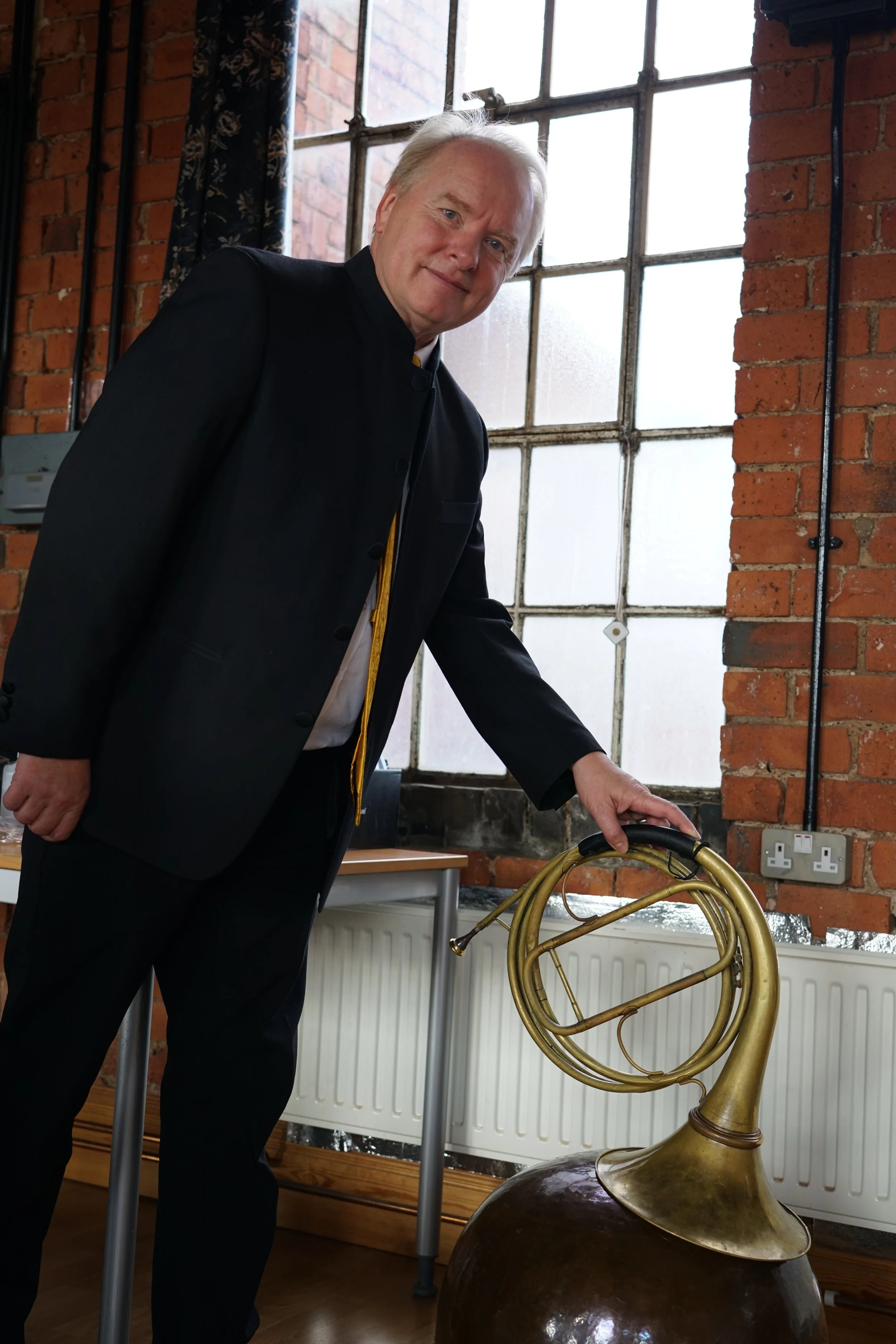Natural Horn
by Gavin Edwards.
Gavin Edwards - Natural Horn
The Horn was the first. It existed before all other brass, woodwind or string instruments. For millennia cave dwellers had been hitting logs, skulls and all manner of other objects, but happily they felt the need for a more musically interesting form of expression!
Well, after a good meal of Dodo drumstick someone had the time and inclination to blow down a cow horn or a seashell. Someone else laughed enough that they did it again and again and again.
Nowadays, those people are still laughing, but mostly in astonishment that playing the horn has become, for some, a sustainable career.
These early horns were naturally very short and could only play a few notes, so players looked for ways to make longer horns. Ibex or goat horns were used and even trees, which were used to make Alp Horns and Digeridoos. These longer horns soon became too long to be easily carried, but luckily the introduction of metallurgy in the Bronze Age led to the development of metal or brass horns. Initially straight tubes like the Alp Horn, these were later coiled to make them easier to carry. Such horns could play many more notes and were used in hunting to signal across fields and through woods.
Amongst the wealthy, it became both a status symbol and a sign of cultural kudos for a Lord to have his own troop of Horns. Joseph Banks, who bankrolled a significant part of Captain Cook's expedition to Botany Bay, brought his horn troop with him on the voyage. Whilst planning for a later voyage to find the northwest passage, the two explorers fell out over Banks' insistence that his Horn troop should be part of the voyage. Cook sadly refused.
For me, the French Horn has always been the fighter pilot of the Orchestra. Daring, brave, often foolhardy and frequently shot down. The sound of the horn can be warm and soft, like a mother's voice. At other times it can be violent and dangerous, searing and painful. It can be so quiet and the very next moment wildly powerful. It is a hunting instrument. It is a romantic instrument - well you've got to be a true romantic to believe that what you intended will emerge accurately! For me the horn has the greatest palette of sounds. It has an amazing four octave span and an incredible dynamic range. It is the most expressive instrument and of course, the best looking.
The name French Horn allegedly comes from the first time that horns were used in an orchestra in England. Handel's Water music was such a challenge for local players that two French players were brought in to play it. They came to London and apparently spent most of their time visiting the local brass players in the local hostelries. When Handel couldn't find them, in frustration, he was heard to call out "Where are those French Horns?" and the moniker was born.


